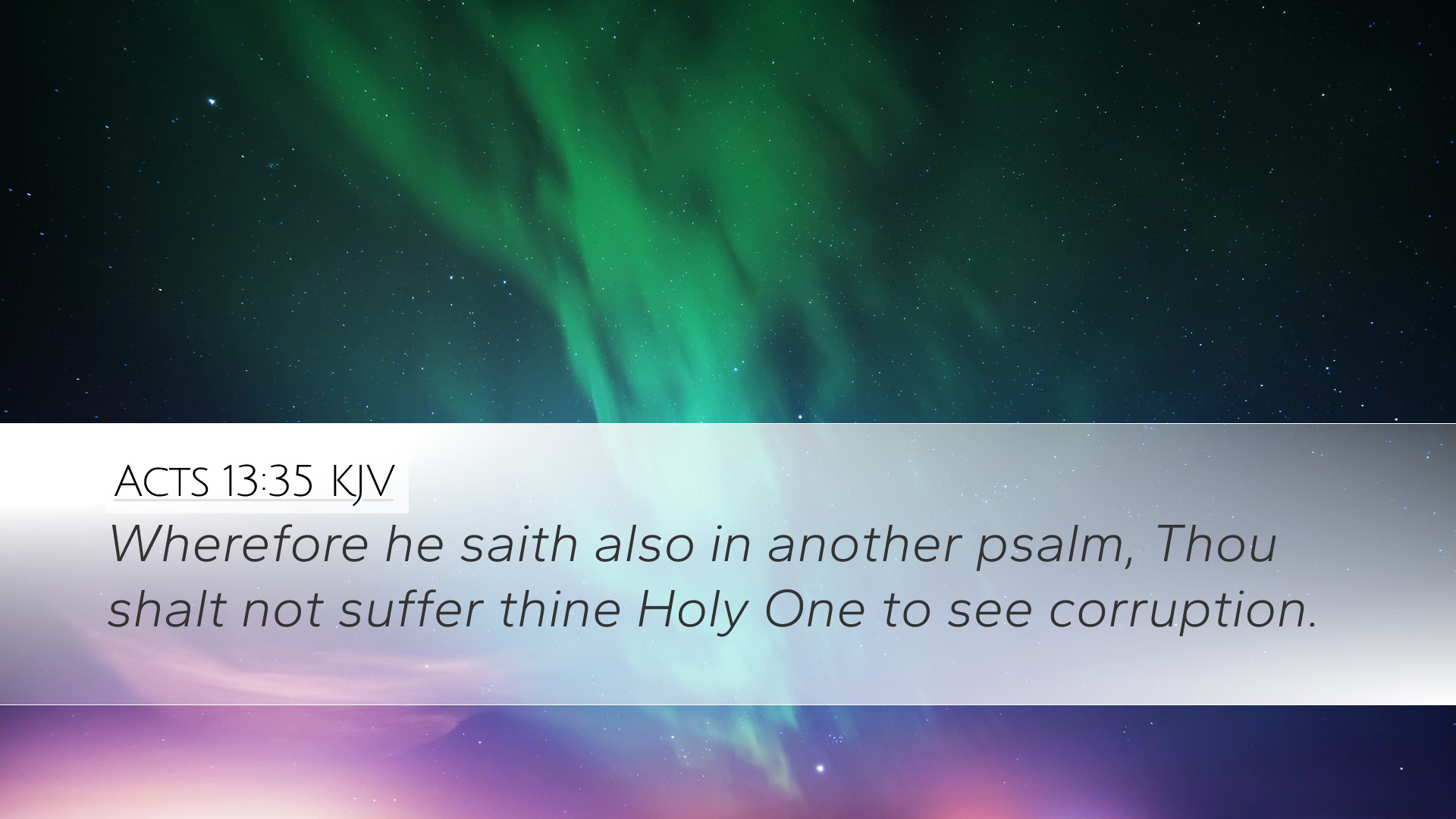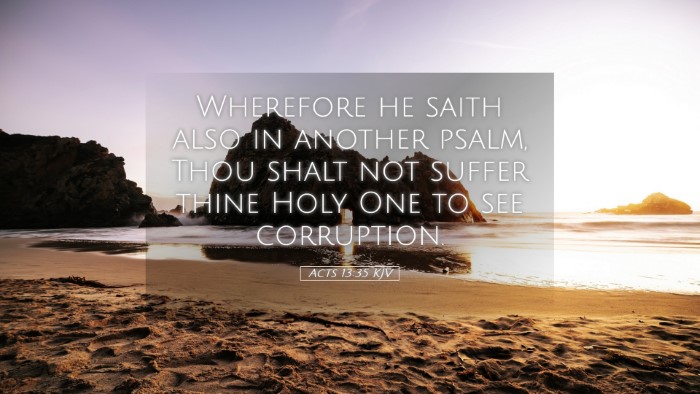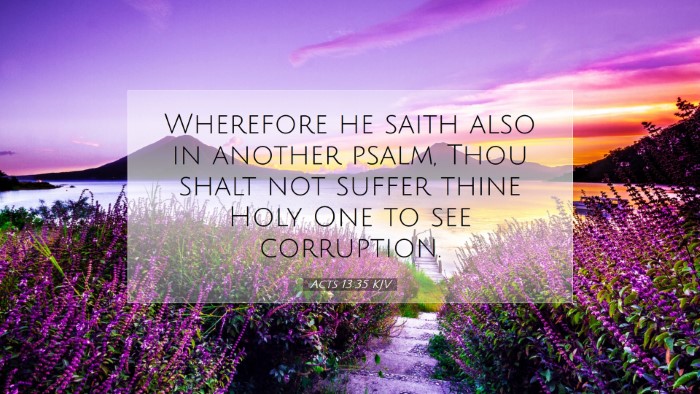Commentary on Acts 13:35
Acts 13:35 states: "Wherefore he saith also in another psalm, Thou shalt not suffer thine Holy One to see corruption." This verse, cited by the Apostle Paul during his sermon in the synagogue of Antioch, holds significant theological implications regarding the resurrection of Christ.
Context of Acts 13:35
The context of Acts 13 features Paul proclaiming the gospel to a Jewish audience. In this chapter, Paul recounts the history of Israel and the coming of Jesus as the fulfillment of God’s promises. He highlights Jesus' death and resurrection as pivotal to salvation, grounding his arguments in Scripture, thus establishing the divine purpose in history.
Interpretations from Public Domain Commentaries
-
Matthew Henry's Commentary
Matthew Henry emphasizes the reference to Psalm 16:10, where the psalmist expresses confidence that God would not abandon him to the grave. Henry points out that this verse predicts the resurrection of Jesus, affirming that even in death, He would not see corruption. This prophetic aspect underscores Jesus' unique nature as both human and divine, which allows Him to conquer death for the sake of humanity.
-
Albert Barnes' Notes
Albert Barnes notes that the phrase "Thou shalt not suffer thine Holy One to see corruption" indicates that the resurrection was not only a matter of divine will but also fulfillment of prophecy. He underscores that 'corruption' is a reference to decay and deterioration after death, which was predicted to be avoided by the 'Holy One' of God, signifying that Jesus, in His resurrection, remained untouched by the decay that typically follows death. Barnes also highlights the importance of calling Jesus "Holy One," which affirms His sinlessness and deity.
-
Adam Clarke's Commentary
Adam Clarke elaborates on the spiritual and theological implications of this prophetic declaration. He asserts that the assurance of resurrection is essential for the Christian faith, as it anchors the hope in eternal life. Clarke differentiates between the mortality of David and the immortality of Christ, which confirms the latter's divine mission. He further points out that this declaration is a cornerstone of apostolic preaching, designed to reinforce the believers' faith in the resurrection and its power over death.
Theological Significance
The theological implications extend beyond mere historical recount. The verse encapsulates key doctrines of the Christian faith: resurrection, victory over sin and death, and the ongoing influence of the Holy Spirit. The resurrection is foundational for Christians as it validates the claims of Jesus and the message of the gospel preached by the apostles.
The Correlation with the Resurrection
As highlighted in various commentaries, Acts 13:35 serves to enhance understanding of Christ's resurrection within the framework of biblical prophecy. This not only strengthens the argument for Christ's identity as the Messiah but also reaffirms His role as the bridge between God and humanity. The resurrection acts as a guarantee of the believer's hope of eternal life, illustrating the transformative nature of faith in Christ.
Application for Believers
The insights derived from Acts 13:35 empower believers to affirm their faith in the risen Christ. Pastors and theologians can emphasize the importance of resurrection on Easter and throughout the year, highlighting the direct connection between Christ's victory over death and the promise of eternal life for believers. This foundational truth reinforces the call to evangelism and the assurance that life through Christ is victorious.
Conclusion
Acts 13:35, through the lens of these public domain commentaries, offers profound insights into the resurrection of Christ. The verse exemplifies how the Old Testament prophecies are fulfilled in the New Testament, bringing hope and assurance to every believer. The exposition not only serves as theological groundwork but also encourages practical application in the lives of those who follow Christ.


